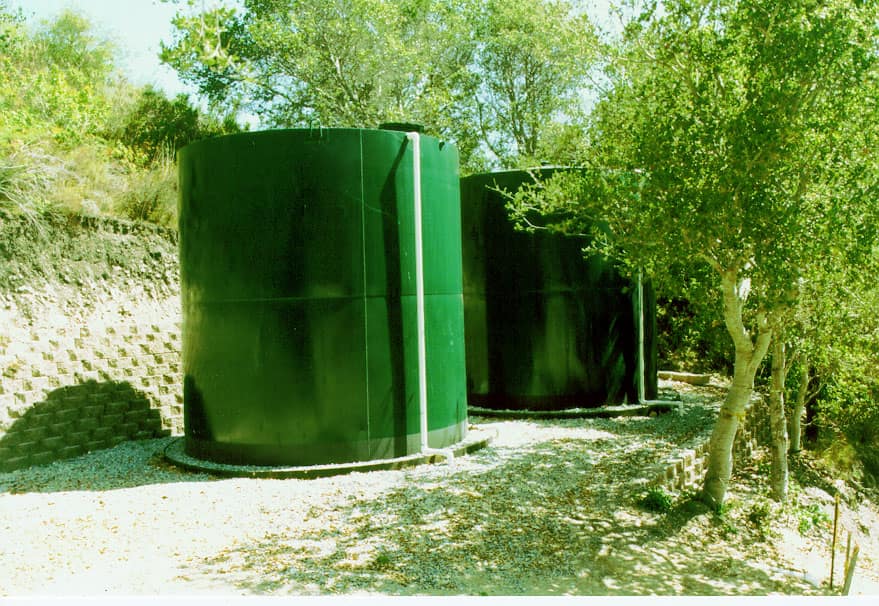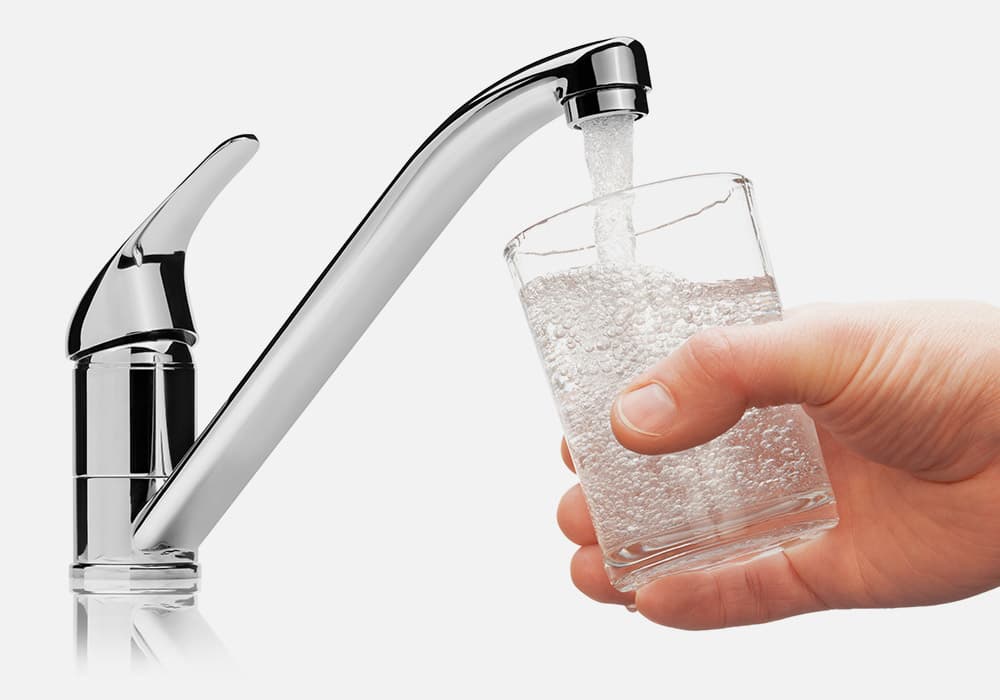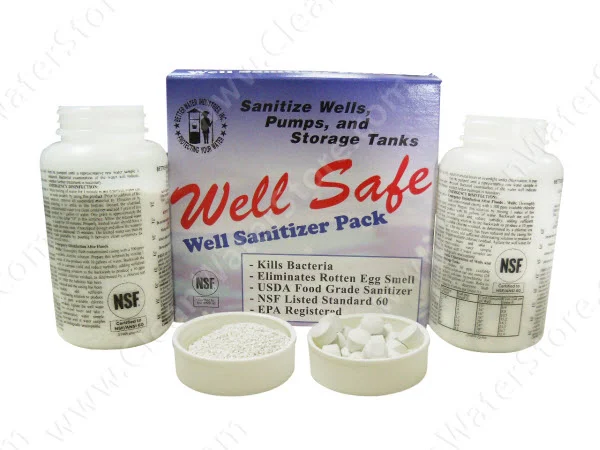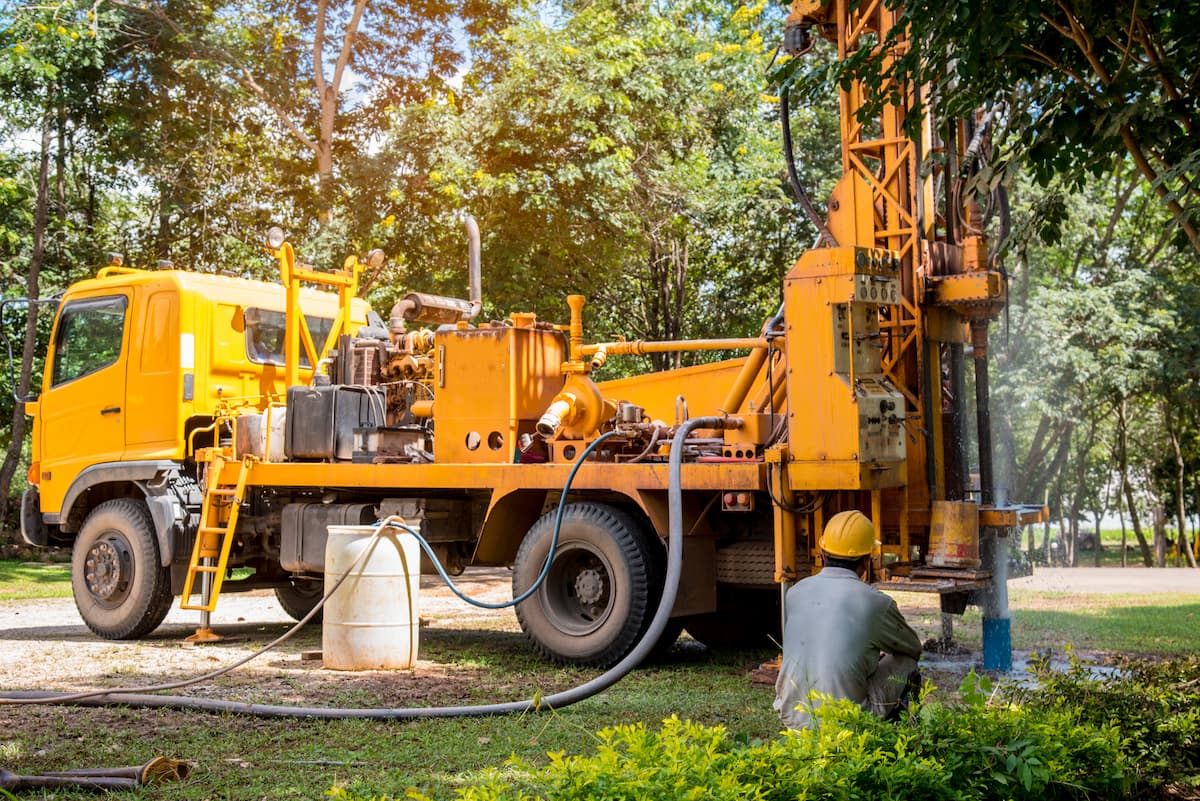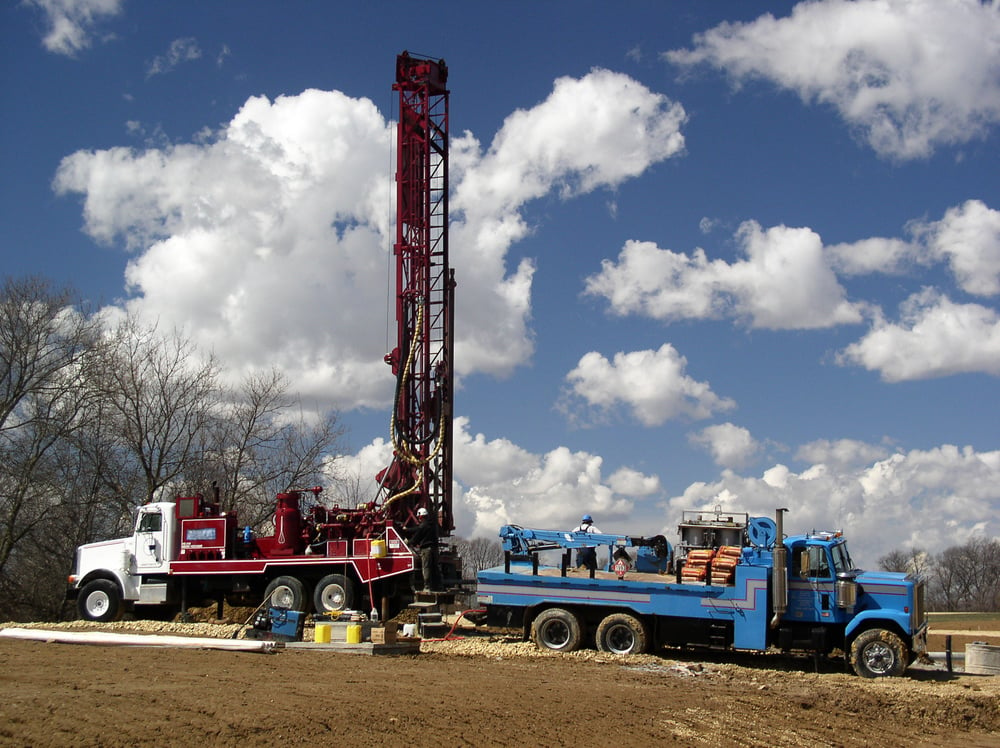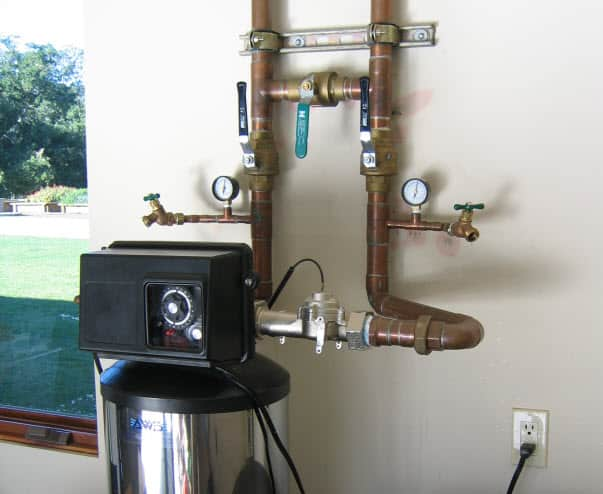Checking Your Pipes For Corrosion and Scale Build-up
Checking for Pipe Corrosion
Corrosion can be a huge problem that is potentially detrimental to your water system. It can cause lasting damage to your water system and have harmful effects on the environment. The harmful effects to the environment lie mainly in the fact that a huge amount of water is wasted through the leaks that occur in so many areas of your water system due to corroded pipes.

The problem does not lie only there. Corrosion costs can be significant, potentially requiring you to replace all of the pipes in your system! Imagine how much of a hassle that would be for you in terms of time, energy, and finances!
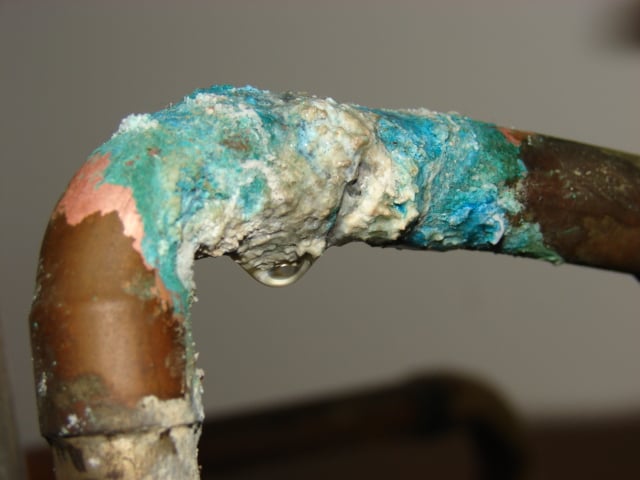
Blue stains are usually an indication of copper corrosion.
Unless your home is newly built, it is imperative that you check your pipes for corrosion. In addition to preventing water from being wasted through corrosive pipes, checking your pipes can also reveal some tell-tale signs of water issues.
How To Check Your Pipes For Corrosion
How to Check for Corrosion
- Know Your Pipes—First, you must know what type of pipes you have throughout the house. You never know; maybe your pipes are corrosion-proof. If so, you won’t need to check them for corrosion, and you just saved yourself time and energy!
- Test your water—A water test can tell you many things, not only about your water but also about the entire system. In this case, if you want to check for corrosion, test your water for copper. An abnormal level of copper can cause corrosion in your pipes unless you are using corrosion-proof pipes. Test your water with our test kit, available here.
- Check for Blue Stains — Your pipes may be leaking. If you can find any leaks, check for blue stains. This will help you tell what is causing your pipes to break down and leak. However, if you can’t locate any leaks, you can check your toilet tank or the areas around your fixtures for blue stains.
- Check for Rust—Rust is a common by-product of corrosion. The easiest way to check for it, especially if you have galvanized pipes, is through your toilet tank.
- Inspect any cut portion of your pipe – The best time to do this is when you’re having some plumbing issues corrected. While your plumber is working on the issue, you can check the cut parts of your pipes for any signs of corrosion.
- Inspect the Exterior- If most of your pipes are not underground but are easily accessible, this would be a great option for you. Inspect the exterior of your pipes and see if there are any pinhole leaks. If there are any leaks, you can know that they’re caused by corrosion if there are rusty, bluish, white, or salt-looking sediments or stains around the leaks.
Once you figure out that there is corrosion happening in your pipes, you can also dig further to know the cause of it. This way, you’d be able to uproot the problem by installing a system that would get rid of copper and other corrosive substances from your water. The earlier you check for this, the better.
Checking for Scale
Scale can also be a huge problem for your pipes. Scale buildup can cause issues with your water supply because it could clog your pipes, potentially interfering with your water pressure. Scale is caused by water hardness, and if you find out that there is scale formation in your pipes, you can also think about how to soften your water.
You can also check your pipes for scales by looking at cut pipe parts when you have plumbing work done. If your water is very hard, the scale formations on your pipes may be very thick.

Your pipes are very important. After all, a water system cannot run without pipes. You need to take better care of your pipes because water supplied to your household always passes through them. If there are any issues, they will surely affect the quality of your water, too.
Check your pipes periodically and remove any water contaminants or issues that could compromise their quality.
Understanding Corrosion
Corrosion is a naturally occurring process that can cause significant damage to materials and structures, particularly those made of metal. At its core, corrosion is a chemical or electrochemical reaction between a metal surface and its environment, leading to the gradual degradation of the metal. This process can occur through various mechanisms, including electrochemical reactions, chemical reactions, and even microbiologically influenced corrosion.
Several factors can accelerate the corrosion process. High temperatures and humidity levels, exposure to certain chemicals, and the presence of dissimilar metals can all contribute to faster corrosion rates. For instance, galvanic corrosion can occur when dissimilar metals come into contact, causing significant damage to the metal surfaces involved. Understanding these mechanisms is crucial for developing effective strategies to prevent and mitigate corrosion.
Identifying Corrosion and Scale Build-up
Spotting corrosion and scale build-up early is key to preventing extensive damage and costly repairs. Corrosion can manifest in several forms, such as localized corrosion, uniform corrosion, and pitting corrosion. Each type has its own set of challenges and requires different approaches for identification and mitigation.
Visual inspection is often the first step in identifying corrosion. Look for signs like rust, staining, and pitting on metal surfaces. Non-destructive testing methods, such as ultrasonic testing and radiography, can also be employed to detect corrosion and scale build-up without damaging the material. For a more detailed analysis, laboratory techniques like chemical analysis and metallography can provide in-depth information about the corrosion process and the materials involved.
Prevention and Mitigation Methods
Preventing and managing material degradation requires a multi-faceted approach, including careful material selection, smart design, and regular maintenance. Choosing metals that are naturally resistant to deterioration is a strong first step. Design features, such as eliminating crevices where moisture can collect and ensuring proper drainage, also help protect surfaces from damage.
One of the most effective techniques is cathodic protection, which applies an electric current to the metal surface to halt the chemical reaction that causes deterioration. Protective coatings and linings, such as paint, varnish, and epoxy, create an additional shield against harmful elements. Regular maintenance, including routine cleaning and inspections, is essential for maintaining system integrity and extending the lifespan of your water infrastructure.
Preserving Infrastructure
Preserving infrastructure from the damaging effects of corrosion requires a proactive and comprehensive approach. Corrosion can lead to significant economic and environmental impacts, including damage to structures, equipment, and the surrounding environment. By implementing effective corrosion control measures, we can extend the lifespan of infrastructure, reduce maintenance costs, and minimize environmental harm.
Cathodic protection and protective coatings are vital tools in the fight against corrosion. Regular inspection and maintenance can help identify and address corrosion issues before they escalate into major problems. Additionally, designing infrastructure with corrosion prevention in mind can significantly reduce the risk of corrosion.
By understanding the nature of corrosion, identifying early signs of corrosion and scale build-up, and employing effective prevention and mitigation methods, we can preserve our infrastructure and mitigate its economic and environmental impacts.




